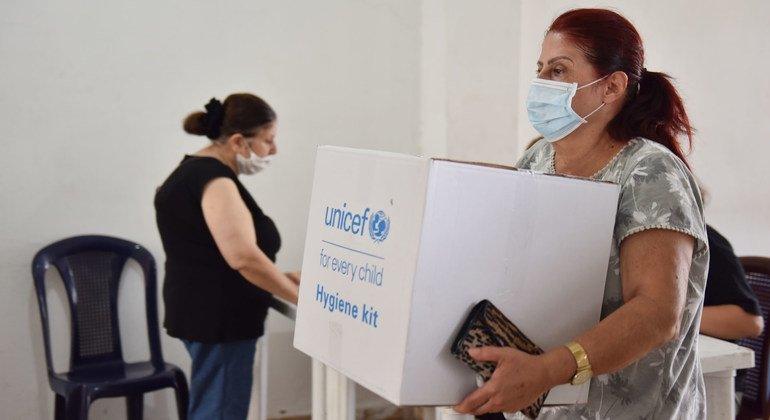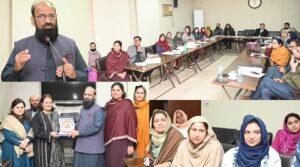World Health Organization (WHO) Director-General Tedros Adhanom Ghebreyesus said a response plan had been activated to strengthen surveillance, contact tracing and water sampling.
The case was confirmed in Akkar, the country’s northernmost governorate.
Speaking in Geneva on Wednesday night, Tedros noted that Lebanese health authorities had launched an oral vaccination campaign in August targeting 350,000 people.
But This health campaign had been “interrupted by the escalation of violence”he said, referring to the intensified exchanges of fire between Hezbollah and the Israeli military since the Gaza war broke out last October and last month’s intensified attacks by Israel, amid Hezbollah’s continued rocket attacks against Israeli communities.
Fears for the unvaccinated
Dr. Abdinasir Abubakar, acting WHO representative in Lebanon, expressed concern that many of those who had fled violence in the south of the country had no protection against cholera, which thrives in watery conditions. and poor sanitation. According to authorities, around 1.2 million have been uprooted so far.
“It could spread very quickly,” he said. “Because some of those communities in the south and in Beirut don’t have [much] immunity to cholera for the last 30 years and the risk of spread is very high.”
The immediate threat of cholera has presented another challenge for UN aid workers and partners working amid ongoing devastating airstrikes reported in eastern Lebanon overnight and another on a government building in the southern city of Nabatieh. on Wednesday that killed 16 people, including the mayor.
WHO chief Tedros said the UN agency has already distributed medical supplies to priority hospitals to treat victims of the Israeli bombings. The U.N. health agency is also working with the Lebanese Red Cross and the hospital to equip blood banks with supplies for safe blood donation “and we are training surgeons to save lives and limbs,” Tedros said. And he added: “The solution to this suffering is not help, but peace.”
Attacks on healthcare
According to WHO monitoring data, since the escalation of hostilities began a month ago, there have been 23 verified attacks on healthcare that have caused 72 deaths and 43 injuries among healthcare workers and patients.
Lebanese authorities, for their part, have reported that some 2,200 people have been killed since last October.
“An increasing number of health centers have had to close, particularly in the south, due to intense shelling and insecurity,” Tedros said, adding that almost half of all primary health care centers in the areas affected by the conflict have closed, while 11 hospitals have been totally or partially evacuated. “Hospitals are already under enormous pressure as they face an unprecedented influx of injured people while trying to maintain essential services,” he said.
Priority of the campaign against polio in Gaza
In Gaza, where the second round of a polio vaccination campaign is underway, the WHO chief insisted its success depended on being able to reach “at least 90 percent” of children under 10 in the entire enclave, “in all the communities and neighborhoods.”
UNRWA and its partners have started the second round of the polio vaccination campaign in Gaza.
A minimum of two vaccine doses are needed to interrupt poliovirus transmission, Tedros said, before warning that escalating violence in northern Gaza had “blocked” humanitarian missions.
“In the first half of October, only one of the 54 UN missions to northern Gaza was successfully facilitated,” he said. “The rest were denied, canceled or prevented. “We call on Israel to give WHO and our partners access to the north so we can reach those who desperately need help.”
After nine attempts, a mission from the UN health agency and its partners finally delivered supplies and fuel to the Kamal Adwan and Al-Sahaba hospitals last Saturday, Tedros explained, before condemning the continued attacks on healthcare in all of Gaza.
This included Monday’s airstrike on the Al Aqsa hospital courtyard in Deir Al Balah, where people were sleeping in tents, “the eighth time the Al Aqsa hospital compound has been attacked since March this year.” .
Top U.N. aid official Joyce Msuya told the Security Council on Wednesday that In the past seven days, nearly 400 Palestinians were reported killed and nearly 1,500 injured in Gaza. “The world has seen images of patients and displaced people, sheltered near Al Aqsa Hospital, burned alive,” said the Acting Under-Secretary-General for Humanitarian Affairs.
Ms. Msuya noted that since early October more than 55,000 people have been displaced from Jabalia in northern Gaza, “while others remain stranded in their homes, without water and food.”
No food aid entered the north from October 2 to 15, he added, “when a trickle was allowed in and all essential survival supplies were running out. Distributions of existing food supplies to people in need continue, but these stocks are rapidly dwindling.”




